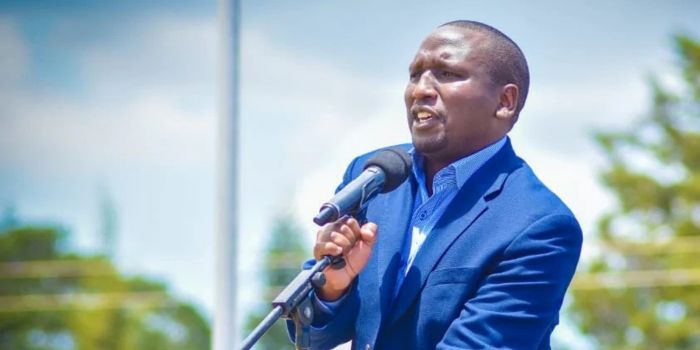Aaron Cheruiyot, the Kericho Senator and Leader of Majority at the Senate, has laid out conditions under which Kenyans could be exempted from paying the Housing Levy, advocating for amendments to the Affordable Housing Bill 2023.
In the Tuesday, March 12, order paper, Cheruiyot proposed several amendments to ensure that the benefits of the bill are accessible to all Kenyans. One significant proposal is to rename the bill to the Rural and Urban Affordable Housing Act 2024.
Among the proposed amendments is a clause aimed at exempting certain individuals from paying the levy. According to Cheruiyot's suggestions, individuals diagnosed with a terminal illness by a certified medical professional would qualify for exemption.
Additionally, Kenyans residing in rural areas who own a title deed registered in their name would also be exempt from the levy if the amendments are approved.
Addressing concerns raised by rural residents who felt they wouldn't benefit from the affordable housing initiative, Cheruiyot's proposal aims to ensure inclusivity.
Another condition for exemption would be for individuals engaged in agricultural farming or business activities with an annual turnover of less than Ksh288,000.
"The Cabinet Secretary shall provide by notice in the Gazette that the aforementioned persons are exempt from section 4 to the extent specified in the notice," stated the Senator.
Furthermore, Cheruiyot proposed that Kenyans entering into a mortgage not contemplated under the act should also be excluded from paying the levy. Additionally, individuals aged 50 and above engaged in informal business activities and those with less than five years remaining to statutory retirement at the time of the act's enactment would be exempt.
The deduction of the Housing Levy was suspended by the Court of Appeal on January 26. The three-judge bench ruled that the levy would remain suspended until the case was finalized and, if found unconstitutional, the government would be required to refund the money.
"The trial Court held that the Housing Levy was introduced without a legal framework. It also held that the levy was targeting a section of Kenyans. In our view, the public interest lies in awaiting the determination of the appeal," read part of the ruling.

